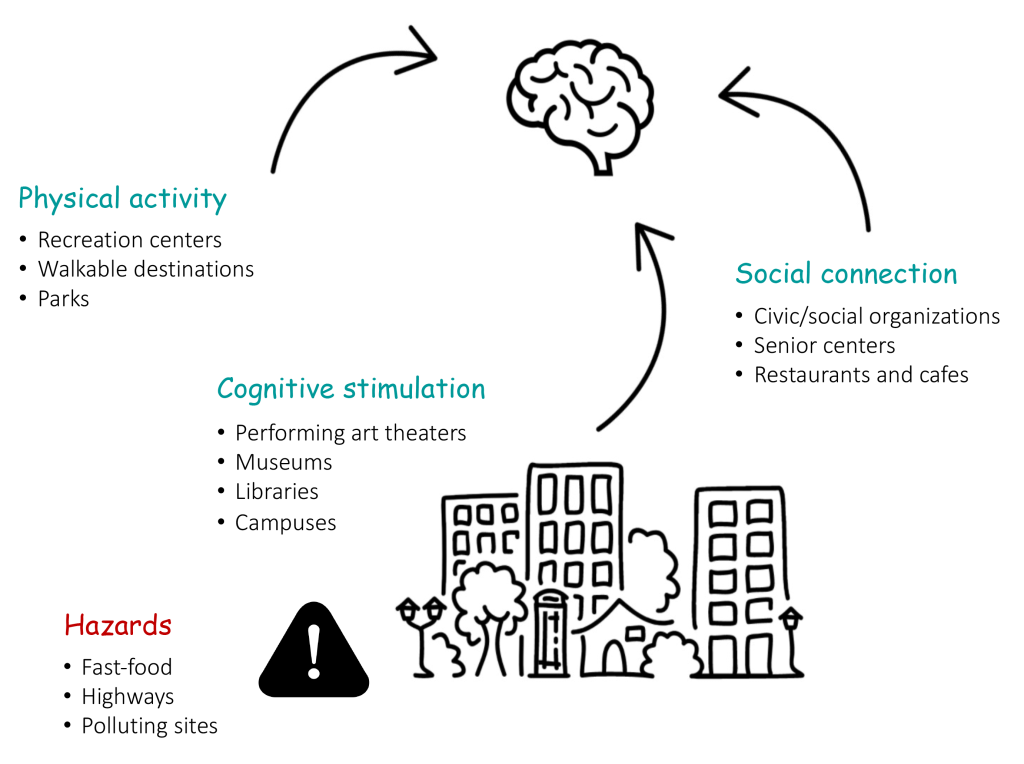How supportive is your community to brain health in later life?
What is Cognability?
Cognability is a way to measure how well your neighborhood can support cognitive health (the ability to think, learn, and remember clearly) as you age. Neighborhoods with places to be physically active, socially engaged, and keep your mind active may boost brain health. However, not everyone has access to these places.

Cognability is a measure of local places that encourage physical activity, social connection, and cognitive stimulation in later life. It also identifies health threats and barriers to accessing community resources. These places include:

Why do neighborhoods matter for cognitive health?

Physical activity
Being physically active through exercise and leisure activities can benefit your brain. Easy-to-walk streets, local parks, swimming pools, and gyms can help you move and exercise.

Social connection
Connecting with other people through social activities and civic programs can help you be less isolated and more engaged with family, friends, and community members. Social activities and support networks are linked to improved cognitive function and reduced risk for dementia. Senior centers, coffee shops, and civic/social organizations can create a social environment to regularly gather with others and feel less lonely.

Cognitive stimulation
Doing creative, complex, and intellectual activities can help protect your brain. Libraries, college campuses, museums, and performing art theaters create opportunities for cognitively-stimulating activities such as learning, reading, playing and listening to music, and solving puzzles.

Community barriers and health threats
Busy highways and polluting industrial sites are sources of pollution that are harmful to your brain. They can also cut off access to community resources and limit enjoyment of parks, walking and socializing outside, and other brain-healthy activities.
